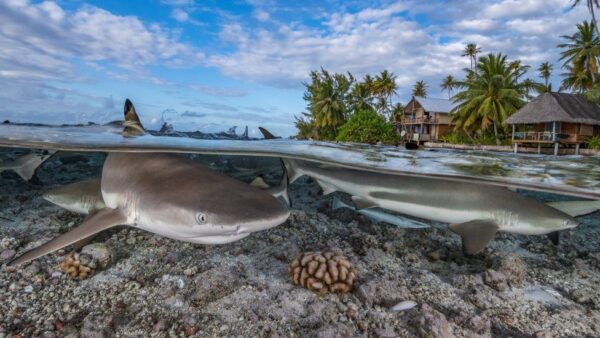More than 50 species of sharks are to be given protection from over-exploitation in what’s being seen as a milestone for shark conservation. Nearly 200 countries have voted to add a raft of sharks to the list of species protected under global trade rules, the BBC reported. The news follows repeated and increasing calls for protection of sharks.
The measures apply to the requiem shark family which includes tiger sharks, as well as to six small hammerhead sharks. The sharks are being pushed to the edge of extinction by the trade in fins to make shark fin soup. This “landmark” vote will give these two shark families “a fighting chance” of survival, said Sue Lieberman of the New York-based Wildlife Conservation Society (WCS). “We know that there’s a biodiversity crisis,” she said. “One of the major threats to species in the wild is over-exploitation for trade.”
The vote at the 19th Conference of the Parties (COP19) in Panama will bring most unsustainable global shark fin trade under regulation.
Shark and ray species close to extinction
Approximately 37% of all sharks (and closely related rays), and 70% of species traded for their fins already at risk of extinction. Sharks and rays are the second most threatened vertebrate group on the planet after amphibians. Many requiem sharks are key predators on the world’s coral reefs, but recent global surveys indicate that reef sharks are functionally extinct on 20% of reefs, further jeopardizing the health of these ecosystems that are already devastated by the impact of climate change. (photo: Hannes Klostermann/WCS).
“The proposals adopted today for the requiem and hammerhead sharks, championed by the government of Panama, will forever change how the world’s ocean predators are managed and protected,” said Luke Warwick, director of shark and ray conservation at the WCS, the BBC reported. The two shark families make up over 50% of the trade in shark fins with many species threatened with extinction.
Illegal trade and wildlife crime
Listing them on Cites means that a country wishing to trade products has to issue a permit to exporters and produce a document which certifies that scientists have shown the permitted trade does not damage wild populations.
CITES is a United Nations agreement that is binding in 184 countries and limits the international trade of identified animals at risk, including sharks. The UK was among countries pushing for sharks to be listed at Cites with funding announced for organisation fighting wildlife crime.
The news was reported widely, including inews, the BBC, Guardian, WWF, Save Our Seas and Forbes, amongst others. The CITES COP19 meeting takes place from November 14-25 in Panama and further information on the discussions can be found here.
